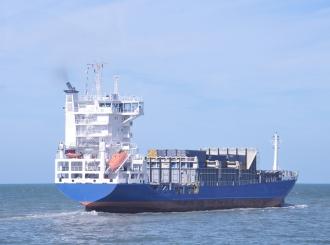
Rabat, 3 December 2015 (ECA): Which kind of rules of origin can help boost trade in Maghreb countries? From 30 November to December 1st in Casablanca (Morocco), the Economic Commission for Africa (Office for North Africa) held a capacity-building workshop on rules of origin. Organised within the framework of ECA’s cooperation with the Arab Maghreb Union (UMA), this training aimed to support the Maghreb Working Group on Rules of Origin in setting up a protocol in this field. Participants examined trends in multilateral negotiations, international and regional experiences and practices, and acquired technical tools that will help them accomplish their mission.
Rules of origin are, by definition, criteria which help determine goods’ countries of origin. They are used to determine the rights and limitations applying to products when imported or exported to third markets, they also play a key role in the formulation of trade policies and preferential trade agreements, and therefore determine how profitable they can be for the various involved parties. “Defining flexible rules of origin that take into account the actual state of industrial fabrics in member countries will determine whether the regional integration process is successful and promotes trade exchange”, said Mr Nassim Oulmane, Acting Director of the ECA office in North Africa. Mr Oulmane also stressed the potential impact of rules of origin on economic players in involved countries as it can, for example, influence decisions such as which country they import intermediary goods from.
Selecting the right rules of origin will therefore play a key role in trade liberalisation in the Maghreb region according to AMU Secretary General Habib Ben Yahia, who called for the set-up of an efficient, flexible system that would be acceptable to all. “The agreed rules of origin should not become additional obstacles to trade, or tricks to block imports. On the contrary, they should promote trade and support the development of industrial value chains to generate complementary economic environments”, he insisted.
The Working Group was set up in 2010 to prepare the Maghreb Protocol on Rules of Origin, a key component of the UMA Draft Free trade agreement. Their task will be very complex as North Africa is among the least integrated areas in the world. To achieve the fair development of trade within the Maghreb region, the Maghreb protocol will have to take into account a wide variety of data, including the state of industrial fabrics in involved economies and the fact that rules of origin can be used to protect local production. In a context marked by the globalisation ofindustrial production processes,the Protocol will have to help countries find an equilibrium between economic openness and the protection of national production. While remaining beneficial to involved parties, the Maghreb rules of origin will also have to take into account UMA countries’ existing trade agreements with other countries or regions such as the EU in the euro-Mediterranean region or the Greater Arab Free Trade Area (GAFTA) in Arab countries. They will also have to take into account the urgent need to prepare for the upcoming negotiations for the set-up of the African Continental Free Trade Area (CFTA).
The debate on rules of origin in North Africa will now be pursued, including on ECA’s Knowledge management platform (http://knowledge4africa.uneca.org/). Maintaining the dialogue will play a key role in turning Maghreb countries’ efforts into a success, warned Mr Ben Yahia.
Issued by:Communication TeamEconomic Commission for Africa
Office for North Africa
Tel: +212 (0) 537 548 749Email: hfilali-ansary@uneca.org;cea.an.coms@gmail.com